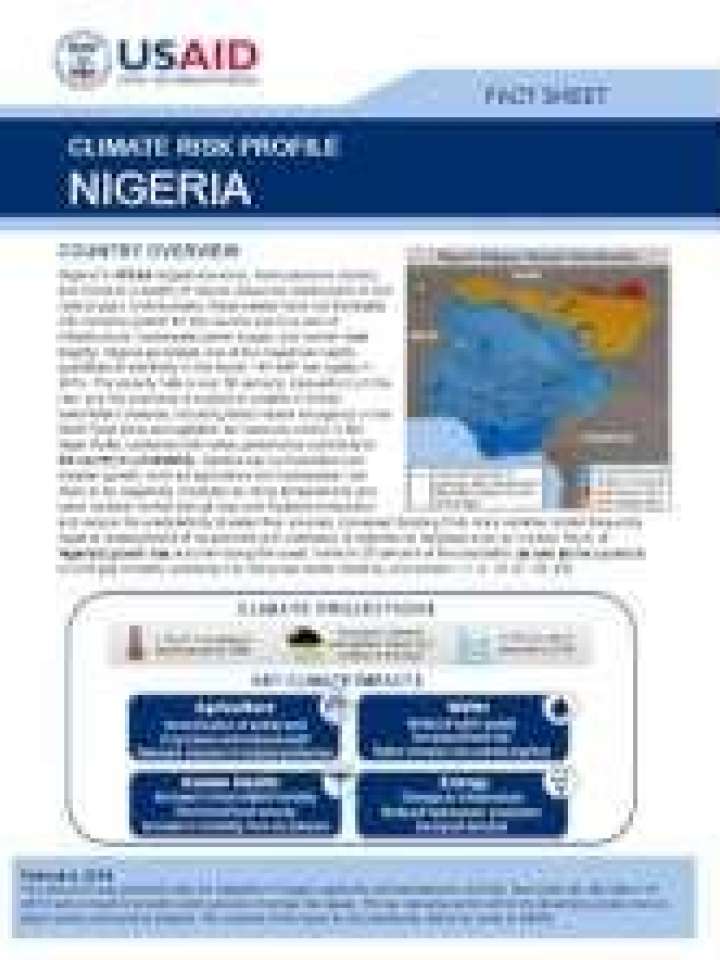Climate risk profile: Nigeria
This profile provides an overview of climate risks in Nigeria, including how climate change will potentially impact four key sectors in the country: water resources, agriculture, human health and energy. The brief also includes an overview of historical and future climate trends in Nigeria, the policy context outlining existing climate risk strategies and plans, and a list of ongoing programs that focus on building resilience to climate variability and change.
Nigeria is Africa’s largest economy and home to significant natural resources, including oil and natural gas reserves. However, over half of Nigeria’s population still lives below the poverty line. Sectors key to diversified and broader growth, including agriculture and hydropower, are particularly vulnerable to increased temperatures and more variable rainfall which can disrupt crop and livestock production and reduce the predictability of water flow volumes. While rising temperatures are expected to reduce the area of endemic malaria, extreme heat events will create additional health risks for urban populations and for vulnerable populations in other areas. Rising sea levels threaten coastal populations, and oil and gas production with increased risk of flooding, infrastructure loss, and salinization of surface and coastal aquifers.
Explore further
